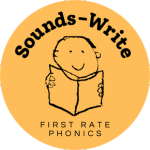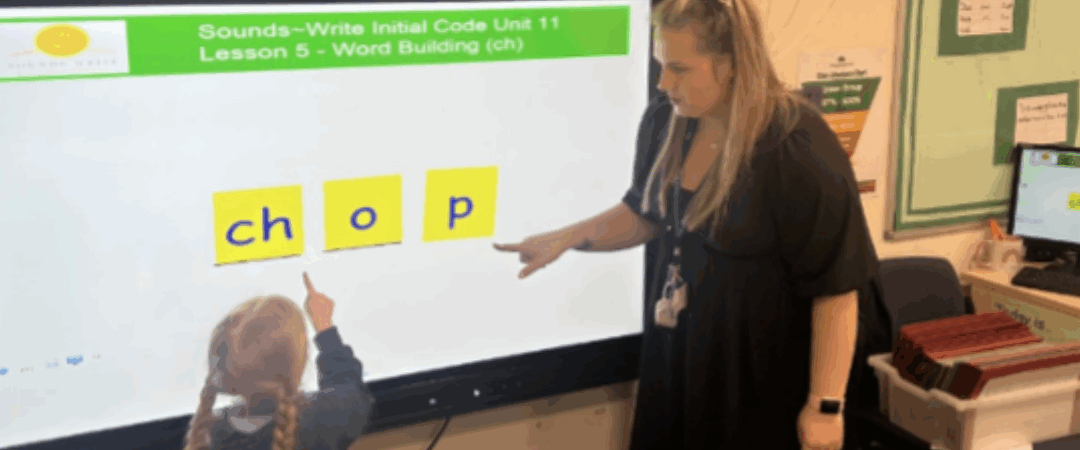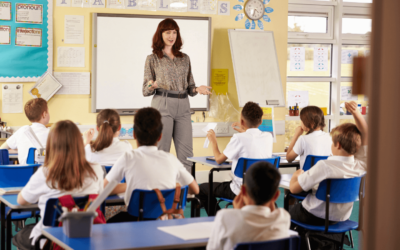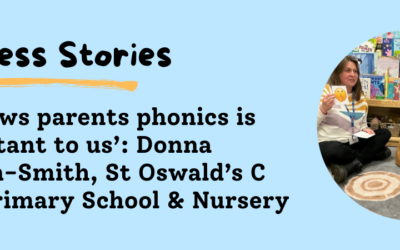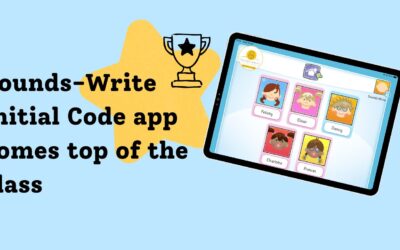We spoke to Claire Davis, Assistant Headteacher at Kingswood Parks Primary School, a Sounds-Write Training School in Hull.
Why did you choose Sounds-Write?
In January 2020 we started looking for a new effective systematic synthetic phonics programme and, as a Talk for Writing school, we were signposted to Selby Primary School, where our reading leaders attended the Sounds-Write taster day. We were seeking a whole-school, consistent approach to the teaching of phonics in KS1 and Reception that would also address the difficulties with the teaching of spelling we were facing in KS2. There was a need to upskill staff in the teaching of phonics beyond Year 2, and the taster day gave us a true insight of how spelling can be taught in the Sounds-Write way.

The children really enjoy their Sounds-Write lessons. They are always highly engaged and actively involved.
Claire Davis, Assistant Headteacher
How did you implement Sounds-Write?
In September 2020 sixteen teachers from Reception to Year 6 began the four-days training course. We also trained two teaching assistants who would be based in Year 1 to ensure high quality interventions. Since then, all Reception, Year 1 and Year 2 teachers have had the full four-day training course. As a three-form entry school we have ensured that one teacher in each KS2 year group is fully trained, and they lead in their year group in the planning process. This year our Assistant Head Teacher also completed the Sounds-Write for Year 3-6 course, and this has ensured that the progressive teaching of spelling in these year groups.
What has been the reaction from the children and parents to the adoption of the Sounds-Write programme?
The children really enjoy their Sounds-Write lessons. They are always highly engaged and actively involved. The structure of the programme ensures that children can focus on the skills and code knowledge they need in order to read and write words. All classes have held a Sounds-Write parent workshop where the teachers showcased how phonics and spelling is taught in school.
What impact has Sounds-Write had on pupil progress?
In Reception, the progress the children are making is phenomenal. The children are already independently writing simple sentences that can be read by others using all their code knowledge, and it is only March! At the end of this year, we are expecting 89% of the Year 1 children to pass the Phonics Screening Check, which is an increase from previous years.

How do staff feel about the programme?
The staff are extremely confident to teach the lessons. The programme provides structure for which sounds to teach, with examples of words to support this. As the children progress through the school, so does the complexity of the words.
What would you say to other schools about the Sounds-Write programme?
We highly recommend the Sounds-Write approach to the teaching of phonics and spelling. The consistency and progression across the whole school is clear to see, and the staff have become skilled and knowledgeable in how to teach phonics. Once you begin, you will never consider another programme again!
You may also like
Phonics Screening Check – Tips for a Strong Start to the Academic Year (Australia)
Whilst the timing of this blog was prompted by the start of the new academic year in Australia, the guidance will be useful to teachers using a Phonics Screening Check anywhere around the world. In fact, we shared a VERY similar post back in September for the start of...
‘It shows parents phonics is important to us’: Donna Wilson-Smith, St Oswald’s C of E Primary School & Nursery
Donna Wilson-Smith, Headteacher at St Oswald’s Church of England Primary School and Nursery and a former Sounds-Write Literacy Specialist, shares with us how they have been using Sounds-Write in the nursery to get children ready to start their literacy journey.Tell us...
Sounds-Write Initial Code app comes top of the class
With more than 9,000 apps marketed as supporting early reading development, parents and educators find it almost impossible to choose truly effective apps for reading instruction. The authors of the study conclude that despite widespread use, most literacy apps do not...
Discover Sounds-Write
Book a free consultation to discuss your individual training needs.
